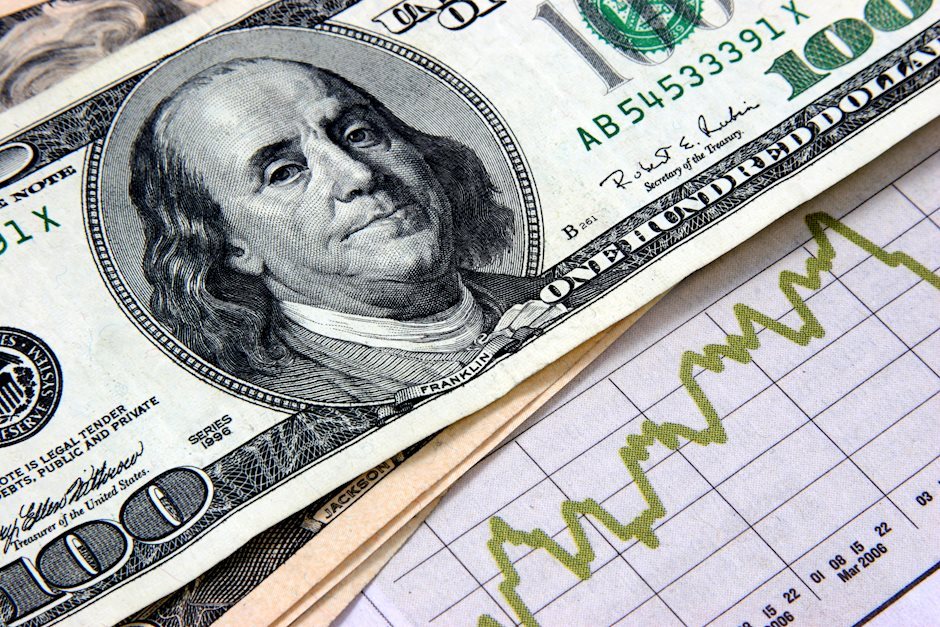Forex Today: Dollar remains strong ahead of a busy week

A busy week lies ahead. Not only is the FOMC meeting scheduled, but the Bank of England and the Bank of Japan will also hold policy meetings. Inflation data from the Eurozone and employment figures from the US, New Zealand, and Canada will be released. Additionally, the ISM Services report is due in the US and Chinese PMIs. Geopolitical developments also remain key factors. Investors will continue to digest corporate earnings results.
Here is what you need to know for next week:
The US Dollar Index rebounded from one-month lows and posted weekly gains, trading around 106.50 and holding near the year-to-date highs. The Dollar's rally is regaining momentum, with a critical resistance level around the 107.00 area. The US economic data remains a crucial driver for the Dollar. This week, US Q3 GDP data exceeded expectations, showing a economic acceleration at the fastest pace since mid-2021.
Next week, the Federal Reserve (Fed) will announce its monetary policy decision. Market expectations suggest no change in policy despite the robust economy and tight labor market, as inflation slows but remains above target. In terms of economic data, the focus will be on employment figures, including the ADP Private Employment report on Wednesday, Jobless Claims on Thursday, and Nonfarm Payrolls on Friday. The Employment Cost Index, scheduled for release on Tuesday, one day before the FOMC decision, will also be important.
Despite declining Treasury yields, the DXY posted weekly gains. Robust US economic data and risk aversion supported the Greenback. Major Wall Street indices recorded their lowest weekly closes in months due to corporate results, geopolitical risks, expectations of higher interest rates for a longer period, and a gloomy global economic outlook
The European Central Bank (ECB) kept interest rates steady, and market consensus suggests they are done with rate hikes. The ECB ended a streak of ten consecutive rate hikes as inflation slowed down and amid increasing economic uncertainty with the Eurozone on the brink of recession.
The Euro finished the week lower against the US Dollar, retreating from the monthly highs reached on Tuesday. EUR/USD encountered resistance at 1.0690, the confluence of the 55-week and 100-week Simple Moving Averages (SMA), and pulled back. The pair managed to avoid a close below 1.0500, which would indicate further weakness.
Eurozone inflation data is due next week, with preliminary figures for October. It will be crucial for market expectations and also for the ECB's outlook. A rebound in inflation could change the perception of the central bank, but it may not necessarily boost the Euro. The headline Consumer Price Index (CPI) for the region is expected to fall to 3.1% from 4.4%.
The Bank of Japan will announce its monetary policy decision on Tuesday. There could be news regarding an increase in the 10-year yield cap. A no change in policy here could impact the Japanese Yen, potentially increasing fears of intervention from Japanese authorities to curb the Yen's weakness. Market participants will also closely analyze the updated macro forecasts from the BoJ. USD/JPY pulled back sharply on Friday, ending the week in negative territory below 150.00.
GBP/USD failed to hold onto gains and finished the week with losses, posting the lowest weekly close since March. However, the pair avoided hitting new year-to-date lows, and stayed above 1.2100. The Bank of England (BoE) will have its monetary policy meeting, with consensus expecting no change.
Analysts at TD Securities on BoE:
There have been virtually no signs of strength in the recent data, and as such, we look for a comfortable 8-1 vote in favour of a hold. Moreover, forward guidance will likely be softened a bit, in light of the weaker economic outlook—signaling a pretty high bar for further hikes.
Next week, Chinese data, including the Purchasing Managers' Index (PMI), will be important for market sentiment and particularly for Antipodean currencies, which remain under pressure and are trading near monthly lows due to a stronger US Dollar, geopolitical factors, and the global outlook.
AUD/USD hit one-year lows but quickly rebounded to a familiar range between 0.6280 and 0.6400. The overall trend is downward, but a daily close above 0.6400 could indicate a more sustainable rebound.
Australia will report retail sales data next week. Market participants see that the Reserve Bank of Australia (RBA) could raise interest rates at their November 7 meeting, following the latest round of inflation data. The Australian Dollar was the best performer among G10 currencies during the week, driven by these expectations.
The Canadian Dollar was the weakest performer. USD/CAD rose for the fourth consecutive week, posting its highest close since October 2022 above 1.3850. Canada will release employment data next Friday.
Like this article? Help us with some feedback by answering this survey:
Author

Matías Salord
FXStreet
Matías started in financial markets in 2008, after graduating in Economics. He was trained in chart analysis and then became an educator. He also studied Journalism. He started writing analyses for specialized websites before joining FXStreet.

















